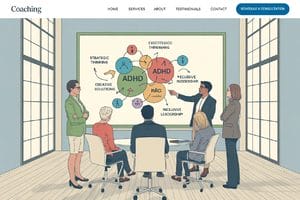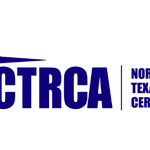TL;DR; This comprehensive guide explores the Americans with Disabilities Act (ADA) as it applies to ADHD in leadership positions, detailing the accommodation request process, disclosure strategies, and legal protections. Learn practical approaches for both ADHD leaders seeking support and HR professionals implementing inclusive policies, with specific frameworks for transforming potential workplace challenges into leadership advantages.
When Leadership Meets Legal Protection: The ADHD Executive’s Dilemma
As I sat across from a brilliant technology executive during a coaching session, I could see the conflict in her eyes. “I’ve built my career on solving complex problems and driving innovation,” she told me, “but certain administrative aspects of my role have become increasingly challenging as our company grows.” She lowered her voice slightly. “My doctor recently confirmed what I’ve long suspected—I have ADHD. There are simple accommodations that would help me perform at my best, but I’m terrified that requesting them might undermine my authority or change how my board perceives my capabilities.”
This conversation reflects a reality I’ve encountered repeatedly in my coaching practice: the complex intersection of ADHD, leadership, and workplace accommodations. Many executives and professionals with ADHD find themselves in a difficult position—needing certain supports to optimize their performance while worrying about the potential impact of disclosure and accommodation requests on their professional standing.
What many don’t realize is that there’s a robust legal framework designed to protect individuals with ADHD in the workplace, including those in leadership positions. Understanding these protections can transform how ADHD leaders approach their work environments and advocate for their needs.
Understanding the Legal Framework: The ADA and ADHD
The Americans with Disabilities Act (ADA) provides the primary legal protection for individuals with ADHD in the workplace. To effectively navigate this framework, it’s essential to understand how the ADA applies specifically to ADHD.
ADHD as a Protected Disability
The ADA defines a disability as “a physical or mental impairment that substantially limits one or more major life activities.” ADHD can qualify as a disability under this definition when it significantly impacts activities such as:
- Concentrating
- Learning
- Reading
- Thinking
- Working
- Communicating
- Planning and organizing
What’s crucial to understand is that ADHD doesn’t automatically qualify as a disability under the ADA. The determination depends on how significantly it impacts the individual’s functioning, particularly after accounting for any mitigating measures like medication or compensatory strategies.
A financial services executive I coached initially questioned whether her ADHD would qualify for protection. “I’ve been successful in my career,” she explained, “so how can I claim it substantially limits me?” Through our work together, she came to understand that her success didn’t negate her disability status—in fact, she had been working twice as hard as her peers to compensate for ADHD-related challenges, often at significant personal cost.
Who Is Protected: Coverage and Eligibility
The ADA’s employment provisions (Title I) apply to:
- Private employers with 15 or more employees
- State and local government employers
- Employment agencies
- Labor organizations
- Joint labor-management committees
Federal employees are protected by similar provisions under the Rehabilitation Act of 1973.
To be protected, an individual must:
- Have a disability as defined by the ADA
- Be qualified for the job (meeting the education, experience, and skill requirements)
- Be able to perform the essential functions of the position with or without reasonable accommodation
For leaders with ADHD, this last point is particularly important. The law recognizes that with appropriate accommodations, many individuals with ADHD can excel in demanding leadership roles.
Reasonable Accommodations: The Core of ADA Protection
At the heart of the ADA is the concept of “reasonable accommodations”—modifications or adjustments that enable qualified individuals with disabilities to perform essential job functions and enjoy equal employment opportunities.
For ADHD leaders, reasonable accommodations might include:
- Modified work schedules aligned with peak focus times
- Distraction-reduced work environments
- Meeting structure adjustments (agendas, documentation, etc.)
- Technology tools for organization and focus
- Administrative support for certain tasks
- Flexible work locations
The key limitation is that accommodations must not cause “undue hardship”—significant difficulty or expense for the employer, considering factors like cost and operational impact.
A technology CEO I worked with successfully implemented several accommodations that transformed his effectiveness without causing any hardship to his organization. “The changes were simple,” he shared, “but they made an enormous difference in my ability to lead strategically rather than getting bogged down in administrative details that drain my energy.”
The Accommodation Request Process: A Step-by-Step Guide
Understanding your rights is just the first step. Knowing how to effectively request accommodations is equally important for ADHD leaders.
Step 1: Assess Your Needs and Potential Accommodations
Before making any formal request, take time to:
- Identify specific workplace challenges related to your ADHD
- Consider which accommodations would address these challenges
- Reflect on how these accommodations would help you perform essential job functions
- Think about how to frame the benefits to your organization
A marketing executive I coached created what she called an “optimization plan” before approaching HR. “I identified three specific challenges—meeting structure, information management, and schedule flexibility—and developed clear accommodation requests for each, along with the business benefits these changes would bring.”
Step 2: Gather Appropriate Documentation
While not always required for the initial request, having documentation ready can streamline the process. This typically includes:
- A diagnosis from a qualified healthcare provider
- Information about how your ADHD affects your work
- Recommendations for specific accommodations
The documentation doesn’t need to disclose your complete medical history—just enough information to establish the need for accommodations.
Step 3: Initiate the Interactive Process
The ADA requires an “interactive process” between employer and employee to determine appropriate accommodations. This typically begins with a disclosure of your disability and a request for accommodations.
You can start this process with:
- Your direct supervisor
- Human Resources department
- Disability services coordinator (in larger organizations)
When approaching this conversation, consider language like:
“I’d like to discuss some workplace adjustments that would help me perform at my best. I have ADHD, which qualifies as a disability under the ADA. I’ve identified some specific accommodations that would help me continue to excel in my leadership role, and I’d like to discuss how we might implement them.”
Step 4: Engage in Collaborative Problem-Solving
The interactive process should be a collaborative dialogue, not a one-way demand. Be prepared to:
- Explain how specific accommodations relate to your ADHD challenges
- Listen to employer concerns or alternative suggestions
- Focus on solutions that meet both your needs and business requirements
- Be flexible about implementation approaches
A healthcare leader I worked with found that framing accommodations as experiments helped reduce resistance. “I suggested we try a modified meeting structure for one month and evaluate the impact,” she explained. “When everyone saw how much more productive our leadership team became, the accommodation was enthusiastically adopted as a best practice.”
Step 5: Document the Agreement
Once accommodations are agreed upon, it’s important to document:
- The specific accommodations approved
- Implementation timelines and responsibilities
- Any review periods to assess effectiveness
- Points of contact for questions or adjustments
This documentation protects both you and your employer by ensuring clarity about expectations and commitments.
Step 6: Implement and Evaluate
After implementation:
- Monitor how well the accommodations are working
- Request adjustments if needed
- Maintain open communication with relevant stakeholders
- Document positive impacts on your performance
A financial services director created what she called an “accommodation impact log” to track how specific accommodations improved her leadership effectiveness. “This data was invaluable when we reviewed the accommodations after three months,” she noted. “I could show concrete improvements in my strategic planning, team development, and project completion.”
Strategic Disclosure: Making the Decision
One of the most challenging aspects of seeking accommodations is deciding whether, when, and how to disclose your ADHD. This decision is particularly complex for leaders, who may worry about how disclosure might affect their authority or advancement opportunities.
Weighing the Benefits and Risks
Potential Benefits of Disclosure:
- Access to formal accommodations that can significantly enhance performance
- Reduced stress from no longer needing to mask or compensate
- Opportunity to educate others and reduce stigma
- Potential to create a more authentic leadership presence
- Legal protections against discrimination
Potential Risks to Consider:
- Misconceptions or stigma about ADHD
- Possible impacts on how your decisions or behaviors are interpreted
- Concerns about confidentiality
- Potential effects on advancement opportunities
A technology executive I coached conducted what he called a “disclosure risk assessment” before making his decision. “I evaluated my organization’s culture, my relationships with key stakeholders, and my specific needs,” he explained. “This structured approach helped me make a decision I felt confident about.”
Disclosure Approaches for Leaders
If you decide to disclose, consider these approaches:
The Need-to-Know Approach
Limit disclosure to only those who need to know to implement accommodations, typically HR and perhaps your direct manager.
Sample Script: “I’d like to discuss something that affects some aspects of my work. I have ADHD, which I manage successfully but occasionally requires some specific accommodations, particularly around meeting structures and information processing. I’m sharing this with you specifically because we work closely together, and these small adjustments would help our collaboration be even more effective. I’d appreciate keeping this information between us for now.”
The Strengths-Based Approach
Frame your disclosure around how your ADHD contributes to your leadership strengths while acknowledging areas where support would be helpful.
Sample Script: “I wanted to share something that helps explain both my strengths and challenges as a leader. I have ADHD, which contributes to my ability to think creatively and see connections others might miss—skills that have helped me lead our innovation initiatives successfully. It also means I sometimes process information differently, particularly in certain types of meetings. I’ve found that having agendas in advance and being able to take notes helps me contribute my best thinking. I wanted to share this with you to help us work together even more effectively.”
The Educational Approach
Provide information about ADHD to help address potential misconceptions.
Sample Script: “I’d like to share something about my working style that might be helpful for us to discuss. I have ADHD, which is a neurological difference that affects about 4-5% of adults. For me, it means I have some significant strengths, like being able to hyperfocus on complex problems and think outside the box. It also presents some challenges with certain types of information processing and attention management. I’ve developed effective strategies for these challenges, and there are some simple workplace adjustments that help me perform at my best. I’m happy to answer any questions you might have about how this affects my work and what supports are most helpful.”
Timing Your Disclosure
The timing of disclosure can significantly impact how it’s received:
- After establishing credibility: Many executives choose to disclose after they’ve already proven their capabilities.
- During organizational changes: Restructuring or new leadership might present opportunities for discussing work styles.
- When specific challenges arise: Sometimes a particular project or situation makes accommodations necessary.
- As part of broader conversations: Discussions about team dynamics or work processes can provide natural openings.
A healthcare executive I coached waited until after successfully leading a major organizational transformation before disclosing her ADHD to her board chair. “I wanted them to judge me first on my results,” she explained. “Once I had demonstrated my leadership capabilities, the diagnosis became just another piece of information rather than a defining characteristic.”
Effective Accommodations for ADHD Leaders
While accommodations should always be tailored to individual needs, certain adjustments have proven particularly effective for leaders with ADHD.
Meeting Accommodations
Meetings often present significant challenges for ADHD leaders due to their structure, duration, and information density.
Effective accommodations include:
- Advance agendas with clear objectives and time allocations
- Permission to take notes or record meetings (with appropriate confidentiality measures)
- Visual aids during presentations and discussions
- Structured discussion formats that reduce interruptions
- Regular breaks during lengthy meetings
- Follow-up summaries with action items clearly outlined
A CEO I coached implemented what he called “agenda discipline” across his organization. “It started as an accommodation for me,” he explained, “but it improved meeting effectiveness for everyone.”
Schedule and Environment Accommodations
The physical environment and work schedule can significantly impact ADHD leaders’ effectiveness.
Consider accommodations like:
- Flexible work hours aligned with peak focus times
- Blocked focus time without interruptions for complex work
- Reduced noise distractions through office location or noise-canceling headphones
- Standing desk options or permission to move during meetings
- Lighting adjustments to reduce sensory overload
- Remote work options for tasks requiring deep concentration
A financial services executive negotiated what she called “deep work Wednesdays”—a day when she could work from home without meetings to focus on strategic projects. “This single accommodation transformed my effectiveness,” she shared.
Communication Accommodations
ADHD can affect how leaders process and manage information, making communication accommodations particularly valuable.
Effective approaches include:
- Multiple formats for important information (verbal and written)
- Clear deadlines and priorities for projects and tasks
- Regular check-in structures with key team members
- Permission to use assistive technology like text-to-speech or dictation software
- Email and messaging protocols that reduce unnecessary interruptions
A marketing director worked with her team to develop communication guidelines that specified which matters required immediate attention and which could wait for scheduled check-ins. “This simple system reduced my constant context-switching,” she explained, “which dramatically improved my strategic thinking.”
Administrative Support Accommodations
Strategic administrative support can be a game-changer for ADHD leaders.
Consider accommodations like:
- Executive assistant support focused on organization and follow-through
- Delegation protocols for detail-oriented tasks
- Project management systems that externalize information and deadlines
- Meeting preparation support to review materials in advance
One technology executive restructured his administrative support to focus specifically on areas affected by his ADHD. “My EA now serves as my ‘implementation partner,'” he explained. “I focus on vision and strategy, and she ensures nothing falls through the cracks in execution.”
Legal Protections Beyond the ADA
While the ADA provides the primary framework for workplace accommodations, other legal protections may also apply to ADHD leaders.
State and Local Laws
Many states and municipalities have their own disability protection laws that may provide broader coverage or additional rights. For example:
- California’s Fair Employment and Housing Act (FEHA) applies to employers with five or more employees and may provide broader protections than the ADA.
- New York City’s Human Rights Law includes explicit protections for individuals with disabilities, including neurological conditions.
- Massachusetts law requires accommodations if they enable the employee to perform the “essential functions” of the job, which may be interpreted more broadly than under federal law.
It’s worth researching the specific protections in your location, as they may provide additional rights or resources.
Family and Medical Leave Act (FMLA)
The FMLA can provide important protections for employees who need time for ADHD-related medical appointments or treatment. Eligible employees can take up to 12 weeks of unpaid, job-protected leave per year for serious health conditions, including ADHD management.
Confidentiality Protections
Several laws protect the confidentiality of disability-related information:
- The ADA requires employers to maintain the confidentiality of all medical information obtained during accommodation requests.
- The Health Insurance Portability and Accountability Act (HIPAA) protects the privacy of health information.
- The Genetic Information Nondiscrimination Act (GINA) prohibits employers from requesting genetic information, which can include certain aspects of medical history.
A healthcare leader I coached was concerned about confidentiality when requesting accommodations. “Understanding these protections gave me the confidence to disclose my ADHD to HR,” she shared. “I knew the information couldn’t legally be shared with my team or board without my permission.”
Creating a Supportive Environment: A Guide for HR and Legal Professionals
For HR and legal professionals, creating an environment that supports ADHD leaders isn’t just about compliance—it’s about enabling top talent to perform at their best.
Developing Inclusive Policies
Effective policies for supporting ADHD leaders include:
- Clear accommodation procedures that maintain dignity and confidentiality
- Flexible work arrangements that can benefit all employees
- Performance evaluation systems that focus on outcomes rather than work styles
- Meeting and communication guidelines that support diverse thinking styles
- Leadership development programs that recognize different paths to effectiveness
One organization I worked with implemented what they called “Work Style Profiles” for all leaders—not just those with ADHD or other disabilities. This normalized conversations about different working preferences and created a framework for accommodations that didn’t single out neurodivergent leaders.
Training and Education
Providing education about neurodiversity can significantly improve organizational culture:
- Leadership training on supporting diverse thinking styles
- HR professional development on accommodation best practices
- Team workshops on inclusive collaboration
- Organization-wide awareness about neurodiversity as a competitive advantage
A technology company I consulted with included neurodiversity in their regular diversity and inclusion training, helping to reduce stigma and increase understanding throughout the organization.
Creating Systemic Supports
Beyond individual accommodations, organizations can implement systemic supports:
- Universal design principles in workplace environments
- Flexible technology policies that allow for personalized tools
- Administrative support structures that can be customized to individual needs
- Meeting protocols that work for diverse thinking styles
- Communication systems with built-in flexibility
As explored in our article on Unlocking the Power of Neurodiversity in Executive Leadership, these systemic approaches can transform organizational effectiveness while supporting neurodivergent leaders.
When Challenges Arise: Addressing Accommodation Issues
Despite legal protections, challenges can arise in the accommodation process. Understanding how to address these issues is important for both ADHD leaders and HR professionals.
Accommodation Denials
If an accommodation request is denied, consider these steps:
- Request specific reasons for the denial in writing
- Suggest alternatives that might address employer concerns
- Provide additional documentation if the denial relates to insufficient evidence of disability or need
- Engage in further interactive dialogue to find mutually acceptable solutions
- Consider involving a third party such as an ADHD coach or advocate
A technology leader I coached initially received pushback on his request for a flexible schedule. He proposed a 90-day trial period with clear performance metrics. “The results spoke for themselves,” he shared. “My productivity increased by 40% when I could align my work hours with my natural focus patterns.”
Confidentiality Breaches
If your confidential information is shared inappropriately:
- Address the issue directly with the person who shared the information
- Remind relevant parties of legal confidentiality requirements
- Consult with HR or legal counsel if necessary
- Refocus the conversation on your performance and needs
A marketing director discovered her ADHD diagnosis had been mentioned in a leadership meeting where she wasn’t present. She scheduled a private conversation with the person who had shared the information, explaining the importance of confidentiality and refocusing the discussion on her work contributions rather than her diagnosis.
Discrimination Concerns
If you believe you’re experiencing discrimination related to your ADHD:
- Document all relevant incidents with dates, times, and descriptions
- Follow internal complaint procedures if available
- Consult with an employment attorney familiar with disability law
- Consider filing a complaint with the Equal Employment Opportunity Commission (EEOC) or state equivalent
- Continue performing your job duties to the best of your ability
While legal action is rarely needed, understanding your rights and options can provide important protection.
The Accommodation Decision Tree: An Interactive Tool
Use this decision tree to help navigate your accommodation choices. Start at the top and follow the path that best matches your situation:
1. Do you need formal accommodations to perform your job effectively?
- Yes → Proceed to question 2
- No → Proceed to question 3
2. Are the accommodations you need obvious or would they require explanation?
- Obvious/No explanation needed → Consider limited disclosure only to those who can approve accommodations
- Require explanation → Consider disclosure with an educational approach to relevant parties
3. Is masking your ADHD causing significant stress or affecting your authenticity as a leader?
- Yes → Proceed to question 4
- No → Consider non-disclosure while implementing personal strategies; revisit decision as needed
4. Is your workplace culture generally supportive of diversity and inclusion?
- Yes → Consider strategic disclosure with a strengths-based approach
- No/Unsure → Consider more limited disclosure to trusted individuals while building support networks
5. Would disclosure help explain work patterns that might otherwise be misinterpreted?
- Yes → Consider targeted disclosure to address specific misconceptions
- No → Weigh personal benefits of disclosure against potential risks
Remember that disclosure isn’t an all-or-nothing decision. You might choose different levels of disclosure with different people or at different times in your career.
Transforming Challenges into Leadership Advantages
Perhaps the most powerful aspect of thoughtful accommodation is how it can transform potential challenges into leadership strengths. As explored in our article on Leading with ADHD, many ADHD traits can become significant assets when properly understood and supported.
From Distractibility to Innovation
With appropriate accommodations like distraction-reduced environments and focused work time, the ADHD tendency toward divergent thinking can drive remarkable innovation.
A technology CEO I coached implemented what he called “innovation blocks” in his schedule—protected time for exploring new ideas without interruption. “These periods are when my ‘distractible’ brain makes connections others miss,” he explained. “Some of our most successful products have emerged from these sessions.”
From Impulsivity to Decisive Action
With structures for important decisions but freedom for quick action when appropriate, impulsivity can transform into decisive leadership.
A healthcare executive developed a “decision framework” that helped her distinguish between decisions requiring careful deliberation and those where quick action was beneficial. “In crisis situations, my ability to make rapid decisions without getting bogged down in analysis paralysis has saved critical projects,” she noted.
From Emotional Intensity to Authentic Leadership
With emotional regulation strategies and appropriate communication channels, emotional intensity can become passionate, authentic leadership.
As detailed in our article on Emotional Intelligence and ADHD, many leaders with ADHD develop exceptional emotional intelligence when they learn to channel their natural emotional responsiveness.
A marketing director who disclosed her ADHD to her team found that it actually enhanced her leadership presence. “Being open about how my brain works has made me a more authentic leader,” she shared. “My team appreciates my passion and creativity, and the accommodations we’ve implemented help ensure that energy is channeled productively.”
Frequently Asked Questions
I'm worried that disclosing my ADHD will make me seem less capable as a leader. How can I address this concern?
This is a common and valid concern. Consider framing your disclosure in terms of optimizing your performance rather than overcoming limitations. Emphasize how understanding your thinking style helps you leverage your strengths more effectively. Many executives find that a strengths-based disclosure approach actually enhances others’ perception of their self-awareness and leadership maturity. You might say something like: “Understanding how my brain works has helped me become more effective by creating systems that capitalize on my creative thinking while ensuring nothing falls through the cracks.” If possible, time your disclosure after demonstrating clear successes in your role, which establishes your capability independent of your ADHD.
What are the most important accommodations for executives with ADHD that don't require formal disclosure?
Many effective accommodations can be implemented without formal disclosure. These include: using noise-canceling headphones to reduce distractions; scheduling your most challenging work during your peak focus hours; utilizing project management tools to externalize information and deadlines; creating templates for recurring tasks and communications; and developing partnerships with team members whose strengths complement yours. You can often request meeting agendas in advance or suggest structured meeting formats as general productivity improvements rather than accommodations. Many executives also find that hiring an executive assistant who excels at organization and follow-through provides substantial support without requiring disclosure of their ADHD.
How do I handle it if my disclosure is met with skepticism or misconceptions?
First, stay calm and professional, remembering that misconceptions often stem from lack of information rather than ill intent. Come prepared with factual, science-based information about ADHD from reputable sources like medical journals or recognized ADHD organizations. Focus on specific workplace impacts rather than general ADHD symptoms, and emphasize solutions rather than problems. For example, instead of discussing “distractibility,” you might talk about your need for focused work periods to deliver high-quality strategic thinking. Consider sharing examples of successful leaders with ADHD (without naming names if they haven’t publicly disclosed). If appropriate, offer resources for further learning, but avoid overwhelming the person with too much information at once.
What's the difference between accommodations for executives versus those for other employees with ADHD?
Executive accommodations often focus more on strategic support rather than task-level assistance. While entry-level employees might need accommodations for specific tasks, executives typically need support with information management, communication systems, and strategic work allocation. Executive accommodations often involve restructuring administrative support, modifying leadership meeting formats, or creating communication protocols that filter and prioritize information. Additionally, executives may need to consider how their accommodations affect their leadership presence and team dynamics. The implementation is also often more discreet, as executives may have concerns about perception. Finally, executive accommodations frequently emphasize leveraging strengths (like innovative thinking or crisis management) rather than just addressing challenges.
How can I support an employee who discloses ADHD to me as their manager?
Executive accommodations often focus more on strategic support rather than task-level assistance. While entry-level employees might need accommodations for specific tasks, executives typically need support with information management, communication systems, and strategic work allocation. Executive accommodations often involve restructuring administrative support, modifying leadership meeting formats, or creating communication protocols that filter and prioritize information. Additionally, executives may need to consider how their accommodations affect their leadership presence and team dynamics. The implementation is also often more discreet, as executives may have concerns about perception. Finally, executive accommodations frequently emphasize leveraging strengths (like innovative thinking or crisis management) rather than just addressing challenges.
What documentation is typically required for ADHD accommodations?
Executive accommodations often focus more on strategic support rather than task-level assistance. While entry-level employees might need accommodations for specific tasks, executives typically need support with information management, communication systems, and strategic work allocation. Executive accommodations often involve restructuring administrative support, modifying leadership meeting formats, or creating communication protocols that filter and prioritize information. Additionally, executives may need to consider how their accommodations affect their leadership presence and team dynamics. The implementation is also often more discreet, as executives may have concerns about perception. Finally, executive accommodations frequently emphasize leveraging strengths (like innovative thinking or crisis management) rather than just addressing challenges.
Your Next Step: Creating Your Personal Accommodation Plan
If you’re considering disclosure or accommodations, I invite you to take the next step by creating a personalized plan. Here’s a simple process to get started:
Self-Assessment: Identify your specific ADHD-related strengths and challenges in your leadership role.
Accommodation Brainstorm: List potential accommodations or supports that would address your challenges while leveraging your strengths.
Environment Evaluation: Assess your organizational culture and identify potential allies or resources.
Disclosure Strategy: Based on your needs and environment, draft a disclosure approach and script tailored to your situation.
Implementation Timeline: Create a phased plan for disclosure and accommodation requests, with specific goals and milestones.
Developing this plan can be challenging to do alone. At Tandem Coaching, we specialize in helping executives navigate these complex decisions with confidence and strategic clarity.
Ready to develop your personalized disclosure and accommodation strategy? Schedule a complimentary consultation to explore how ADHD-informed executive coaching can help you make decisions that enhance both your leadership effectiveness and personal wellbeing. During this confidential conversation, we’ll discuss your specific situation and determine if our approach aligns with your needs.
The journey to authentic, effective leadership with ADHD often includes making thoughtful choices about disclosure and accommodations. With the right strategy and support, these decisions can transform potential challenges into your greatest leadership strengths.
Want a Thought Partner?
You’ve read the strategies. You understand the concepts. But sometimes what you need isn’t another framework – it’s a conversation with someone who’s coached ADHD executives through exactly what you’re facing.
Cherie offers complimentary 30-minute consultations for ADHD leaders ready to stop managing around their brain and start leveraging it. No pitch. No obligation. Just a focused conversation about your situation.
About the Authors
Cherie Silas, MCC
She has over 20 years of experience as a corporate leader and uses that background to partner with business executives and their leadership teams to identify and solve their most challenging people, process, and business problems in measurable ways.















